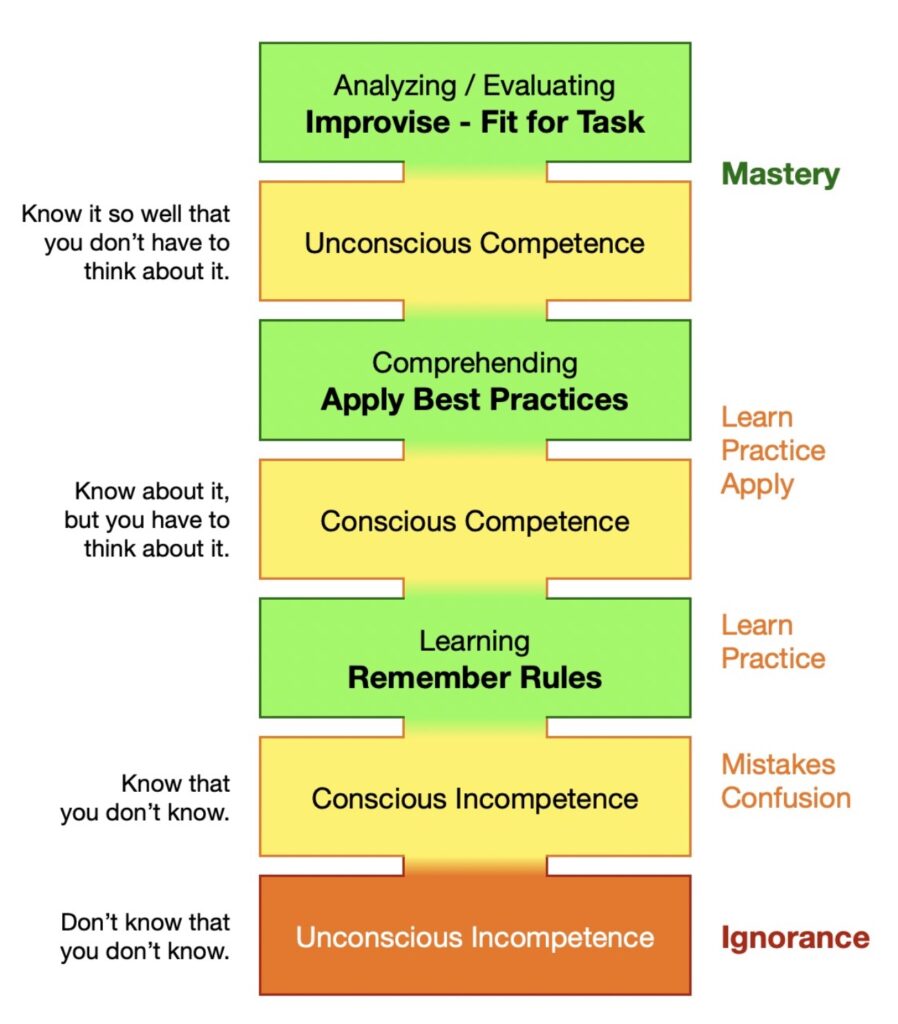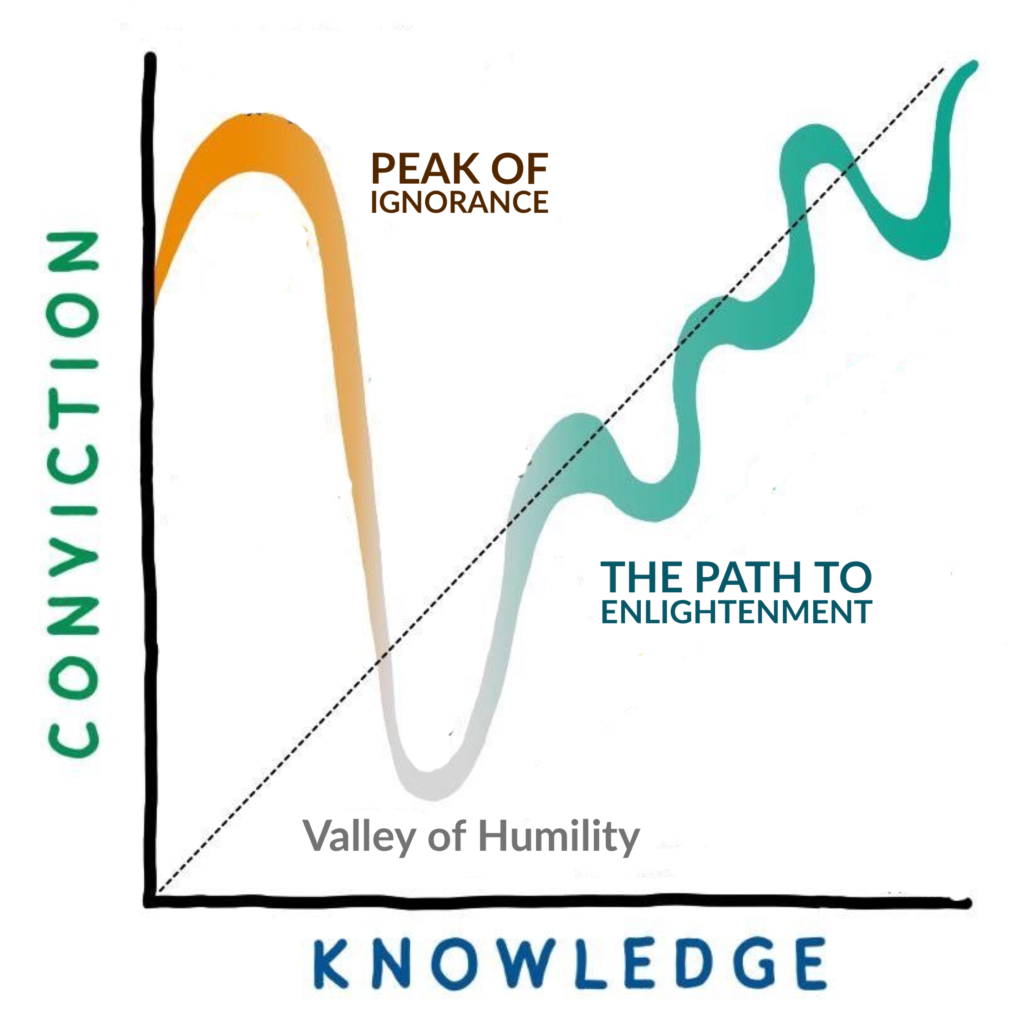In this monologue episode Rich talks about the four stages of learning and a cognitive bias known as the Dunning Kruger Effect, along with some advice to avoid spending too much time at the “Peak of Ignorance”. The Competencies Checklist is a free tool that can provide you with a roadmap of sorts to put you on a more efficient path to learning and becoming competent.
Download your FREE copy of our Competencies Checklist. The checklist is a tool that can provide you with a roadmap of sorts to put you on a more efficient path to learning and becoming a more competent and self-reliant canyoneer.

Stages of Learning
As we learn and acquire new skills we go through four stages:
1. Unconscious Incompetence
We are unaware of our deficiency and must become conscious of it before learning can begin.
2. Conscious Incompetence
We feel uncomfortable as we begin to realize how little we know. We recognize the need to improve and make a commitment to learn by remembering “rules”.
3. Conscious Competence
We start to comprehend the principles behind the systems and techniques we use. Our confidence increases as we continue to learn and improve.
4. Unconscious Competence
Skills become second nature. We can perform without thinking.
Once we have mastered a skill we are able to analyze and evaluate it, to improvise, to improve old systems and to develop new solutions to problems.
The Dunning-Kruger effect is a cognitive bias in which people overestimate their knowledge or ability in a specific area. This tends to occur because a lack of self-awareness prevents them from accurately assessing their own skills.

The Peak of Ignorance
A friend invited you to tag along on a few trips to experience canyoneering. After 20 uneventful canyon descents with him, you realize there’s not much to the sport and you know everything there is to know. You observed your “experienced” friend at the top of every rappel. He passed the rope through a ring that already existed on the anchor, then tossed both sides of the rope down. Everyone in the group rappelled, then you pulled the rope down, coiled it and stuffed it into a backpack.
You don’t know it yet, but you just arrived at the Peak of Ignorance. That place where you feel you know everything, but you do not know what you do not know.
Your descent into the Valley of Humility might come about because you started inviting friends to go canyoneering with you. After all, you are an experienced canyoneer now. You just don’t realize that experience and competence are not the same thing. On one of your trips somebody gets something jammed in their rappel device and you, the leader, don’t know how to deal with it. Or maybe you took a group into a new canyon that was described as being more challenging. You didn’t fully grasp what “more challenging” actually meant. Maybe it was anchor-building challenges or pothole escapes or swiftwater problems. You made it out ok, but you spent the night in the canyon. Or you made it out, but only with the aid of a rescue team. Or you made it out, but one of your friends did not.
Now ask yourself … Have the people you are learning from started the ascent out of their own Valleys of Humility? Or are you learning from people who are still standing proud on the Peak of Ignorance?
The ascent out of the Valley of Humility will require you to learn more. Much more. But how will you know when you have learned enough? Be patient. There will be more Peaks of Ignorance and more Valleys of Humility in your future. Hopefully smaller peaks so you don’t have to descend too deeply into the valleys each time. How many peaks and valleys is unknown. Just don’t get cocky. You will never know everything there is to know. Stay humble. Keep your mind open and never stop learning.
Have fun. Be safe.
We would love to hear your feedback ...
- What part of this episode was the most meaningful for you?
- Was there anything confusing about it, or where did you need more information?
- Do you have questions about the episode?
- Do you have a topic suggestion for a future episode?
Follow us in social media

